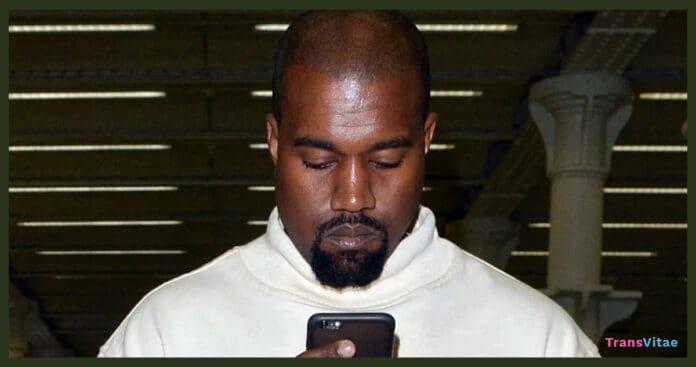Kanye West has once again sparked outrage online—this time for a series of transphobic tweets posted to Twitter—drawing concern from the LGBTQ+ community and allies. While promoting upcoming projects, the rapper used language that many have described as dehumanizing, inflammatory, and attention-seeking.
What Did Kanye West Say?
In the early hours of April 10, West posted several remarks targeting transgender individuals. Among the most widely shared:
“My d**k too long for trans p***y.” and
“You start dating a trans woman and wondering why y’all got so many things in common.”
These tweets appeared during what many online described as a “tweet spree,” with West posting more than a dozen messages in rapid succession. One tweet read, “How many more tweets do I need to break the record,” suggesting the posts may have been part of a performative stunt to attract attention or boost engagement.
At the time of publication, West has not deleted the tweets, nor has he issued any form of clarification or apology.
Online Reaction: Frustration, Fatigue, and Concern
Social media users were quick to respond, with reactions ranging from sarcastic disbelief to outright condemnation. One user replied, “Now we’re doing comedy? Lol.” Another said, “Why are you so interested in the LGBT and trans community?” Others were less patient, writing, “Ight bro, enough is f*****g enough.”
Screenshots of West’s posts quickly spread across multiple platforms, accumulating thousands of shares. For many transgender individuals, the tweets represent more than a tasteless joke—they reflect a continued pattern of high-profile figures treating trans lives as clickbait or controversy fodder.
A Familiar Pattern of Provocation
This is not the first time that West has faced backlash for his inflammatory statements. Recently, he’s made headlines for antisemitic remarks, erratic public behavior, and political commentary that has frequently been accused of courting controversy rather than fostering meaningful conversation.
For many in the transgender community, these latest tweets fit squarely into that established pattern—designed less to make a statement and more to stir outrage and dominate headlines. And while some fans continue to defend West’s “freedom of expression,” others see the pattern as reckless and harmful.
“There’s a difference between free speech and using your platform to punch down,” one trans activist wrote. “This isn’t comedy. It’s cruelty masked as performance.”
LGBTQ+ Organizations Yet to Respond Officially
As of April 11, no major LGBTQ+ organizations have issued formal statements responding to West’s tweets. However, individual advocates and creators have begun speaking out—urging allies to recognize how even seemingly offhanded remarks from celebrities can fuel real-world harm, especially in a climate where transgender rights and safety are under political attack.
West’s tweets come at a time when transgender individuals across the U.S. are facing increasing legislative threats, restricted access to health care, and growing online harassment. In this context, critics argue, the damage of such “jokes” isn’t abstract—it adds fuel to an already dangerous fire.
Why It Matters
To many trans people, West’s remarks feel especially exhausting. They’re not just inappropriate—they’re part of a wider dehumanization campaign being waged in legislatures, online platforms, and media outlets.
“We’re not punchlines. We’re people,” wrote one trans user in a widely shared thread. “Every time someone like Kanye says this stuff, it gives permission for others to repeat it—and the consequences land on us.”
Others echoed the sentiment, highlighting the emotional toll that constant public scrutiny and objectification place on trans individuals, particularly youth and those living in unsupportive environments.
The Bottom Line
While West may be chasing virality, the message his tweets send is not harmless. Celebrities wield massive influence, and their words—whether impulsive or calculated—shape conversations, influence norms, and affect lives.
In moments like these, LGBTQ+ advocates encourage allies not to look away but to speak out. “Even if you’re tired of hearing about Kanye,” one user wrote, “don’t be tired of defending our right to exist.”
As West continues promoting his upcoming projects, it remains to be seen whether the public—or his fanbase—will hold him accountable. For now, trans individuals and allies are once again left doing the emotional labor of pushing back against yet another wave of harmful rhetoric.


